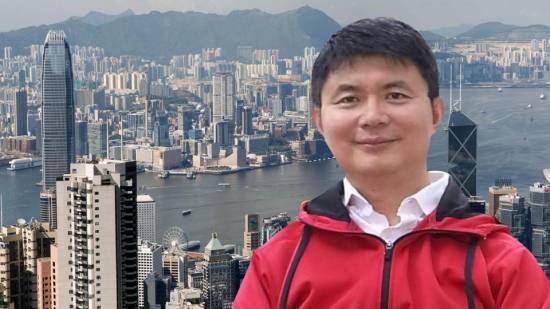A Shanghai court has sentenced Chinese-born Canadian billionaire Xiao Jianhua to 13 years in prison and fined his Tomorrow Holdings Co conglomerate a record $8.1 billion (55.03 billion yuan).
Xiao was personally fined almost $1 billion (6.5 million yuan) for the crimes, the court said on Friday.
From 2001 to 2021, Xiao and Tomorrow Holdings gave shares, real estate, cash and other assets to government officials totalling more than $99.8 million (680 million yuan), to evade financial supervision and seek illegitimate interests, the court said.
The court said that from 2004, Xiao and Tomorrow controlled multiple financial institutions and internet financial platforms, including the failed Baoshang Bank, via multiple layers of indirect shareholders and anonymous ownership.
It said Xiao used the illegal gains for the acquisition of financial institutions, securities trading and overseas investment. But it acknowledged his attempts to make amends.
"Xiao Jianhua has taken commendable actions, so he was given a mitigated punishment in accordance with the law," it said.
In July 2020, nine of the group's related institutions were seized by Chinese regulators as part of a crackdown on risks posed by financial conglomerates.
When asked about Xiao's right to consular access as a Canadian citizen during a regular briefing, Chinese foreign ministry spokesperson Wang Wenbin said that because Chinese law does not recognise dual nationality, Xiao was not entitled to such rights.
The Canadian Embassy in Beijing did not immediately respond to a request for comment. Tomorrow Holdings could not immediately be reached for comment.
Building an empire
China-born Xiao, known to have links to China's Communist Party elite, has not been seen in public since 2017 after he was investigated amid a state-led conglomerate crackdown.
After attending university in the late 1980s, Xiao began selling computers and in the decades that followed built an empire with diverse interests including banking and insurance.
Local media in Hong Kong had reported at the time of Xiao's disappearance that he was snatched by mainland Chinese agents.
This fueled concern over China's tightening influence in the financial hub.
Those fears were at the heart of massive anti-Beijing protests that shook Hong Kong in 2019, prompted by a government bill that would have allowed extraditions to mainland China.
Canada-China tensions
The years after Xiao's disappearance have been marked by plummeting relations between China and Canada, sparked by the arrest in Vancouver of Meng Wanzhou -- the chief financial officer of telecoms giant Huawei -- at the request of the United States.
Following Meng's arrest, Beijing detained two Canadians in China and targeted Canadian agricultural exports.
All three were released in September 2021 after Meng reached a deal with US prosecutors on fraud charges, ending her fight against extradition to the United States.
Since then there have been hopes of a thaw in diplomatic relations, with Beijing lifting a ban on Canadian canola imports earlier this year.
Source: agencies


